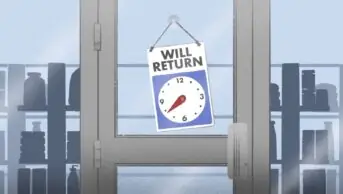
Toby Anderson
Impeccable business credentials led Toby Anderson to become chief executive of McKesson UK in 2018. He worked for supermarket giant Sainsbury’s, latterly as head of online, before moving to Asia for 12 years where he was most recently chief executive of the Asia and Eastern Europe region of the Watson group, which owns Superdrug. Returning to the UK as the boss of McKesson UK — the healthcare business that owns LloydsPharmacy, the second largest UK chain of community pharmacies — he has assumed the role in the middle of a challenging time for the sector.
The new community pharmacy contract; a lack of pharmacists; pharmacy apprenticeships; and, of course, Brexit, were all on the agenda when The Pharmaceutical Journal met Anderson at the McKesson UK headquarters in Coventry.
NHS workforce planners and commercial providers alike are warning that a shortage of pharmacists is increasingly being felt across all sectors. The creation of primary care networks looks set to make this even more acute — how is this affecting LloydsPharmacy?
There is a national shortage of pharmacists, which does cause some stresses and strains, and clearly there’s been some movement into general practice and hospitals.
Given that there is a national shortage of pharmacists, we have to look at how we can better support existing staff
At LloydsPharmacy we’ve acquired a business called Prescribing Support Services, which is one of the largest providers of pharmacist services to GPs, and that allows community pharmacists who join LloydsPharmacy to be able to provide pharmacy services in general practice. A GP practice doesn’t necessarily need a full-time pharmacist, what they need is some support on a more flexible basis. We can provide our pharmacists with job enrichment and a more flexible career by moving towards, say, working three days in a community pharmacy and two in general practice.
Some areas of the country are more challenged, in workforce terms, for all sorts of reasons. But, fundamentally, given that there is a national shortage of pharmacists, we have to face up to the idea that we probably aren’t going to get more people, so we have to look at how we can better support existing staff.
Plans to introduce five-year pharmacy degree apprenticeships have proved controversial. As one of the original members of the trailblazing group behind the proposals, why do you think they are needed?
The primary driver is pharmacist shortages and how we do a better job of attracting younger people into thinking of this as a career choice. The secondary driver is that, like all companies, we pay a very large apprenticeship levy and so the question is: what is the best use of that money in a way that creates the most value? For us, the most important person in our business is the pharmacist and, bearing in mind we have more demand than supply for pharmacists, this is a great place to build an apprenticeship scheme.
There are good elements of how pharmacist training has been carried out historically, but the government is very clear it wants innovation, and we have to provide a broader range of services to our patients for a lower cost. We can argue whether that is right or wrong, but they are the architects of the system, so we need to innovate to provide a sustainable future for the industry and an exciting and rewarding career for pharmacists.
You’ve been critical of the new community pharmacy contract, which provides fixed funding of £2.6bn for the next five years. How will the deal affect community pharmacy?
We welcome the certainty, but the harsh economic reality is that we had three years of funding cuts and then a zero-inflation funding settlement, while at the same time we have significant increases in minimum wage, business rates and other costs. That puts a squeeze on our ability to serve patients because if you have a capped income stream with no inflation and other costs are going up, something has to give.
The intention of the NHS and Department of Health and Social Care (DHSC) to push more services from general practice, hospital emergency departments, and hospital into pharmacy is a great opportunity for pharmacy, and it is absolutely the right direction, but there is a whole tonne of ambiguity about what that looks like.
Dispensing fees are flat. They pay less than half the price of a cup of coffee, and when you think about the clinical risk, the business risk and the huge numbers of people and investment required to accurately dispense a medicine to a patient, it is very little.
The margin is an incredibly complicated system, which makes it very hard for us to know from one week to the next how much we are going to get paid. The government has committed to paying £800m to the industry; it is absolutely vital that it does pay that because the funding is so tight now that there can be no scenario where the government doesn’t meet that commitment.
What needs to happen within the context of the contract to improve the financial outlook for community pharmacies?
We’ve entered into the spirit of partnership in that the NHS has a unique challenge and we do buy into the need for transforming healthcare. In that spirit, the wording in the contract talks about enabling pharmacies to be more efficient, more open to how pharmacies are regulated, and providing more clinical services and the incomes that could come from those. At the moment we are taking the pain of the dispensing part, but we can’t yet see all of the upside of the contract that could be there in the future.
We believe there will be fewer pharmacies in fewer locations in the future, but the locations that exist will be bigger and better run
We’re talking to the government directly and through trade bodies, but we need to move more quickly to a new world where clinical services are part of community pharmacy, and where we also provide the right level of regulation to meet patient safety. We’d like to see some change to the the regulations on hub-and-spoke and single-pack dispensing. I can see the model evolving into healthcare centres of some kind because the traditional model of purely dispensing is not something the government is prepared to pay the full cost of.
LloydsPharmacy announced in 2017 that it would sell or close 200 pharmacies. Are they now off your books and do you foresee further pharmacy closures?
We’ve been ahead of the curve. We saw this coming. We believe there will be fewer pharmacies in fewer locations in the future, but the locations that exist will be bigger and better run, and I think that is what the government is trying to drive towards.
It’s fairly evident that pharmacy is part of the retail service industry in the broader sense and the high street is being shaken up by consumers changing their behaviour and wanting more digital solutions. And, for pharmacy, specifically, there are challenges like business rates. I find it completely unacceptable that GPs and dentists who are also private contractors to the government get relief from business rates while community pharmacy, which is providing 80% or 90% NHS services, is charged the full business rate. It’s insane.
We have closed or sold around 200 stores, which is more than 10% of our portfolio and we are now at about 1,500 pharmacies.
It is also true that people have talked about this topic for a while and said that there are going to be lots of pharmacy closures. So far, there have not been that many at an industry level.
However, I think you will increasingly see the consequences of the contract flow through. It will be harder and I do think more pharmacies will close. While we have already done some trimming, we will always have a look at our portfolio and continue to re-evaluate it. However, we want to grow our business. Our statement of intent is that we are investing in the UK, despite Brexit, and despite everything else. But, will there be some further LloydsPharmacy closures? It’s likely to be more relocations.
Now that Brexit is going to happen, how will it affect patients and pharmacy?
I think we can deal with most problems and we can find a way around any difficulty, but what’s really important is that as a sector we are clear on what the terms of any Brexit deal are as quickly as possible because then we can work around it.
We already experience medicines shortages, for a host of reasons, and the government asks us to help. We do this by managing quotas and ensuring that medicines get to patients in the most equitable way, in terms of biggest clinical need, and we do that incredibly well and all at our cost.
We probably have daily conversations with the DHSC and other parts of the government — the communication channels are pretty open and strong, and it has generally worked quite well. So, we are cautiously hopeful around a sensible outcome that makes Brexit manageable for everyone.


